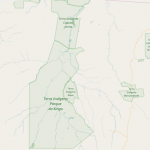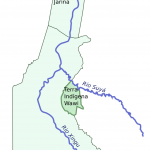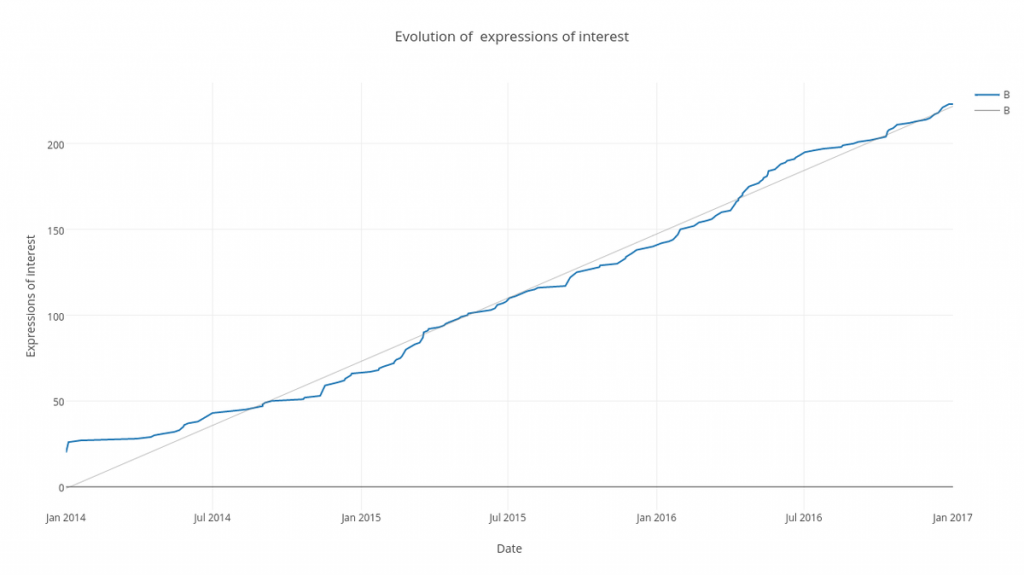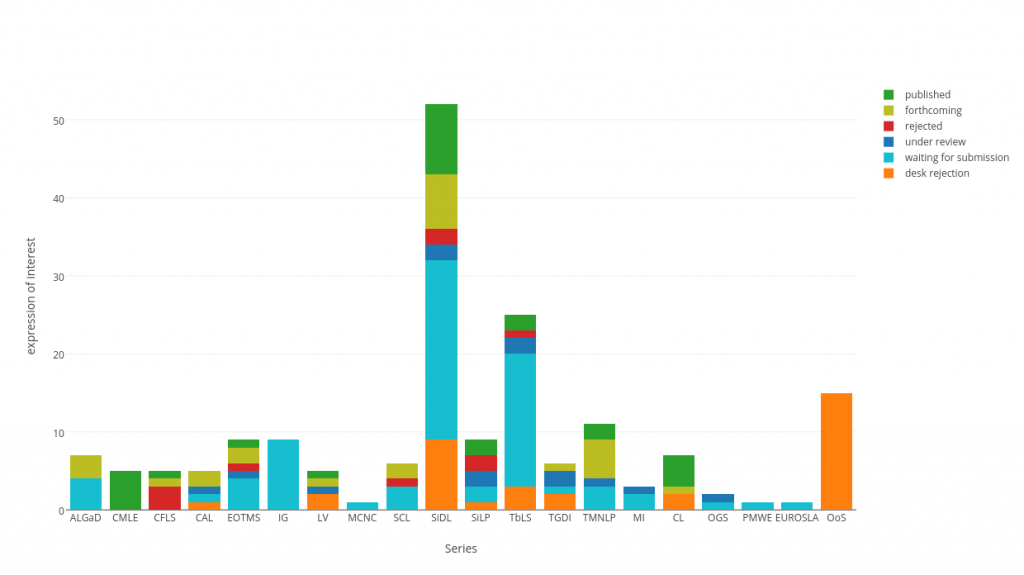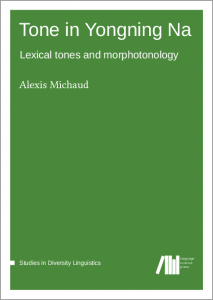One of the founding ideas of Language Science Press was that the press should operate without charging readers or authors (Platinum access). Of course, there are still costs associated with the operation of a press, which have to be financed in a sustainable way. We are happy to announce our cooperation with Knowledge Unlatched. Together with Knowledge Unlatched, we will implement a library partnership model. A library partnership model is similar to crowdfunding: a number of interested parties (in our case libraries) join forces to finance the production of goods they would like to see available (in our case high quality open access linguistic books). When there are enough contributors, production starts. In case there were not enough supporters, nothing is produced, and no one pays. This model is used for instance by the Open Library of Humanities. OLH runs Open Access journals, among which we find Glossa and Laboratory Phonology. There are currently 207 institutions contributing towards the financing of this platform.
 Knowledge Unlatched operates on a similar to the model for books, focusing on the Humanities. In the rounds 1 (2014), 2 (2015), and 3 (2016), there were 28, 78, and 343 books funded, respectively, by a total of 380 institutions from 26 countries. This makes Knowledge Unlatched a natural partner for us: they have the expertise to set up the model, the network to make it work, and a track record which shows they know what they are doing.
Knowledge Unlatched operates on a similar to the model for books, focusing on the Humanities. In the rounds 1 (2014), 2 (2015), and 3 (2016), there were 28, 78, and 343 books funded, respectively, by a total of 380 institutions from 26 countries. This makes Knowledge Unlatched a natural partner for us: they have the expertise to set up the model, the network to make it work, and a track record which shows they know what they are doing.
In order for this model to work, it is necessary that we acquire 100 libraries or institutions which are willing to become members of the library partnership model. Please talk to your library about this project. We will prepare some information material over the course of the next months and make it available to our supporters. In spring 2017, libraries will be proposed membership. We count on our community to prove that linguistics is ready for real open access, without any direct charges for readers or authors. Please help us make this happen and make sure your home institution joins us.
Presentation given at the LangSci series editors meeting on 2016-10-07 (pdf, in German)


